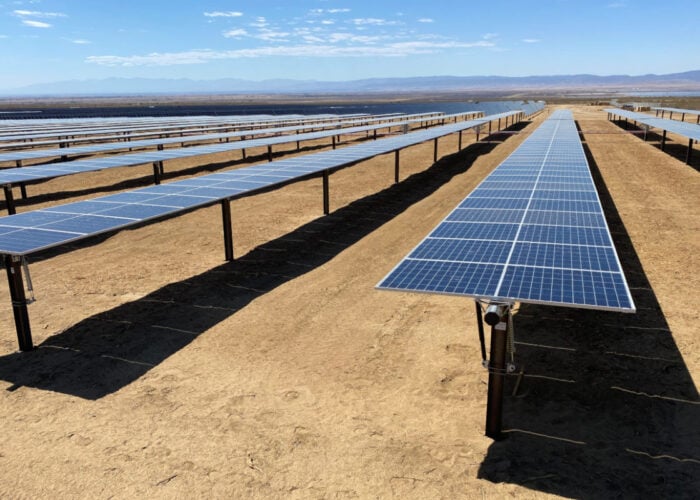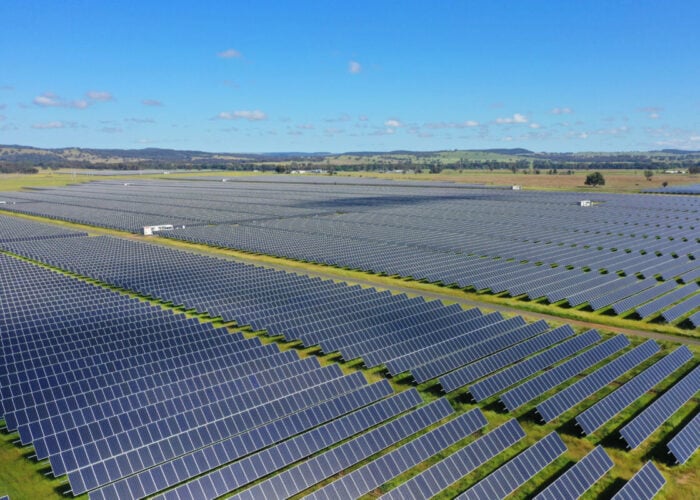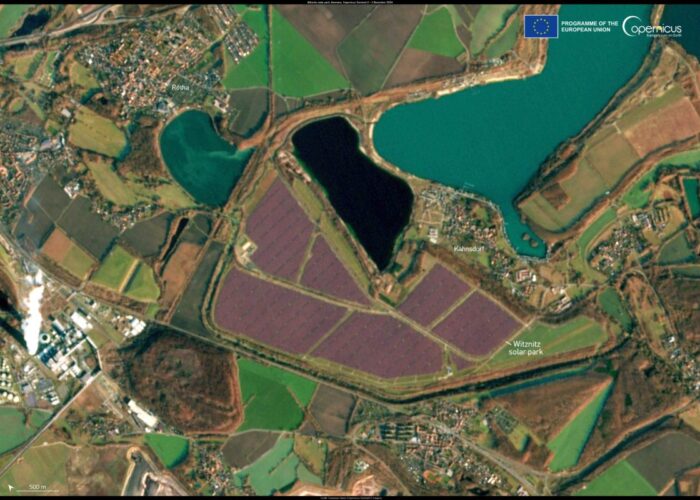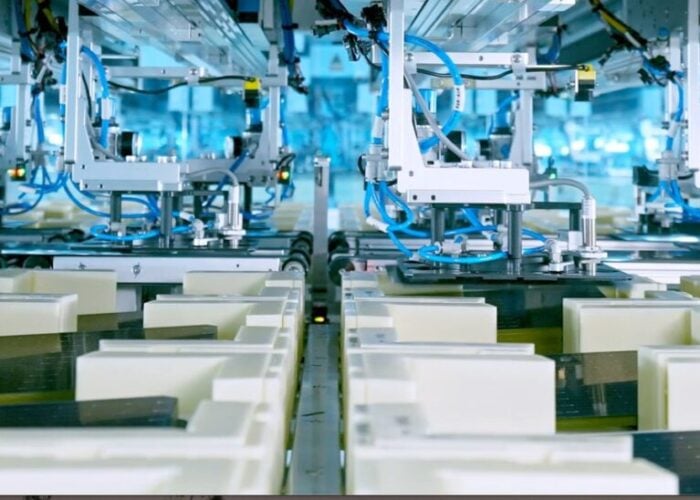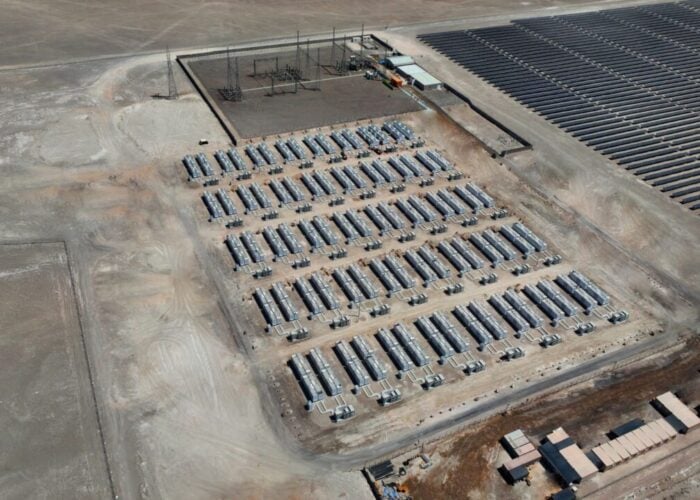Start-up, QBotix, has revealed the ‘QBotix Tracking System’ (QTS), a dual-axis tracking system that employs rugged, intelligent and mobile robots to dynamically operate solar power plants and maximize energy output. QTS is claimed to costs as much as existing single axis systems but generates up to 15% more energy. QTS will generate up to 40% more energy than fixed mount systems.
Problem
Unlock unlimited access for 12 whole months of distinctive global analysis
Photovoltaics International is now included.
- Regular insight and analysis of the industry’s biggest developments
- In-depth interviews with the industry’s leading figures
- Unlimited digital access to the PV Tech Power journal catalogue
- Unlimited digital access to the Photovoltaics International journal catalogue
- Access to more than 1,000 technical papers
- Discounts on Solar Media’s portfolio of events, in-person and virtual
Or continue reading this article for free
Solar tracking systems increase energy production by aiming solar modules toward the sun and tracking the sun as its relative position moves during the course of the day. Conventional tracking systems are claimed by the company to be expensive, unreliable, and complex to install and maintain. They are also said to typically be large structures requiring thousands of pounds of steel and concrete, and contain multiple failure prone controllers and motors to adjust their orientation.
Solution
QTS provides the higher performance and energy output of dual-axis tracking at conventional single-axis tracking prices. QTS increases the energy production of ground-mounted solar power plants by up to 40% over existing fixed mount systems and lowers the Levelized Cost of Electricity (LCOE) by up to 20%. In addition, it is claimed that QTS offers fast installation, has low operations and maintenance costs, and is compatible with all solar panels and mounting foundations. This results in a better return on investment for project developers and investors, greater system reliability and performance for operators and owners, and solar energy that competes in price globally with conventional grid power for utilities and consumers. QTS is based on a new paradigm for power plant architecture and operation
Applications
QTS is compatible with all standard solar modules, inverters and foundation types used in ground-mounted installations for commercial, distributed generation and utility deployments.
Platform
QTS utilizes a pair of autonomous robots, one primary and one back-up, to control 300 kW of solar panels, which are installed on QBotix designed mounting systems that do not have any individual motors, while being optimized for cost, strength, durability and installation simplicity. The robots travel on a track and adjust each mounting system to optimally face the sun in succession. Each robot replaces hundreds of individual motors and controllers found on conventional tracking systems. The embedded intelligence and data communication capabilities of each autonomous robot optimize power plant performance and enables detailed operational. QTS ships pre-assembled and is claimed to be installed in minutes without using heavy equipment and installed without extensive land grading required by other tracking systems. Modular architecture allows fast deployments from 100 kW to multi-MW's. QTS comes with monitoring software that provides detailed information about power plant operation and comes with base warranty of 10 years for the full system, while longer periods are also available.
Availability
QTS is now available for commercial deployments.

